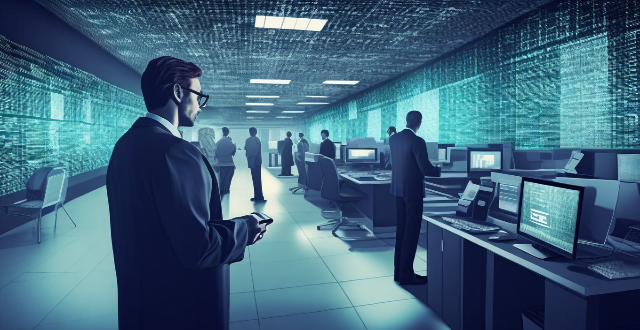Smart grid technology, which uses digital communication technologies to monitor and control the flow of electricity, offers benefits such as increased efficiency and reliability. However, there are security concerns that need to be addressed, including cyber attacks, data breaches, insider threats, physical security risks, and interdependencies with other critical infrastructures. It is essential to implement strong cybersecurity measures, strict access controls, and robust physical security protocols to protect the system's integrity and confidentiality.

Security Concerns Related to Smart Grid Technology
Smart grid technology is a modernized electrical grid that uses digital communication technologies to monitor and control the flow of electricity. While it offers many benefits, such as increased efficiency and reliability, there are also several security concerns that need to be addressed. In this article, we will discuss some of the most significant security concerns related to smart grid technology.
Introduction
The smart grid is an advanced electrical grid that incorporates information and communication technologies to manage energy consumption more efficiently. It allows for two-way communication between the utility company and consumers, enabling real-time monitoring and control of energy usage. However, with these advancements come new security risks that must be addressed to ensure the integrity and confidentiality of the system.
Key Security Concerns
Cyber Attacks
One of the primary security concerns related to smart grid technology is the risk of cyber attacks. Hackers can exploit vulnerabilities in the system to gain unauthorized access and cause disruptions or damage to the grid. This could lead to power outages, blackouts, or even physical damage to critical infrastructure.
Data Breach
Another concern is the potential for data breaches. The smart grid generates vast amounts of data, including sensitive information about consumers' energy usage patterns and personal details. If this data falls into the wrong hands, it could be used for malicious purposes, such as identity theft or targeted attacks on individuals or businesses.
Insider Threats
Insider threats are also a significant concern for smart grid technology. Disgruntled employees or contractors with access to the system could intentionally sabotage the grid or steal sensitive information. This highlights the importance of implementing strict access controls and monitoring employee activities within the system.
Physical Security
In addition to cyber threats, physical security is also a concern for smart grid technology. Attackers could target physical components of the grid, such as substations or transmission lines, causing damage or disruptions to the system. This emphasizes the need for robust physical security measures, including surveillance cameras, alarms, and regular maintenance checks.
Interdependencies with Other Critical Infrastructures
Finally, the interdependencies between smart grid technology and other critical infrastructures pose a security risk. For example, if an attacker successfully compromises the water supply system, they may use that as a stepping stone to gain access to the smart grid. This highlights the need for coordinated security efforts across all critical infrastructure sectors.
Conclusion
While smart grid technology offers many benefits, it is essential to address these security concerns to ensure the integrity and confidentiality of the system. By implementing strong cybersecurity measures, strict access controls, and robust physical security protocols, we can help protect our critical infrastructure from potential threats and ensure a reliable source of energy for all consumers.